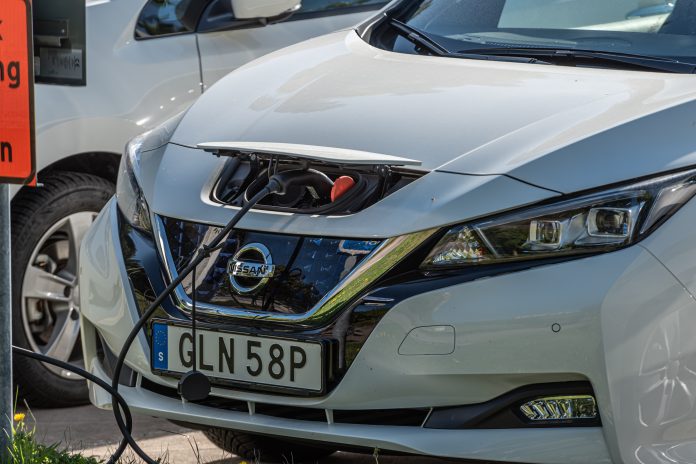Nissan is recalling 23,887 Leaf electric vehicles (EVs) in the U.S. due to a fire risk when using DC fast chargers. The recall affects models manufactured between August 29, 2018, and November 3, 2020, at Nissan’s Smyrna, Tennessee plant. The issue arises when the high-voltage battery packs in these vehicles overheat during Level 3 fast charging, with no visible or audible warnings to alert drivers.
The National Highway Traffic Safety Administration (NHTSA) stated that if the battery overheats during a fast-charging session, it could catch fire, significantly increasing the risk of injury. Currently, Nissan has not identified a definitive fix or the exact cause of the overheating. However, preliminary investigations suggest that lithium-ion batteries in the affected vehicles may develop excessive lithium deposits within the cells, increasing electrical resistance during charging and potentially causing dangerous fluctuations in the battery’s state of charge.
Nissan is actively working on a software solution to prevent the overheating issue. Although the Leaf lacks an actively cooled battery pack, the automaker expects to roll out the free software update by November. The 2019 and 2020 Leaf model owners were notified of the recall on September 20, with a recommendation to avoid using Level 3 fast chargers until the fix is implemented. The recall affects both 40- and 62-kilowatt-hour battery packs, but all impacted units remain under warranty.
The Nissan Leaf, equipped with both AC and DC charging ports, has been on the market for over seven years in its current form and features bi-directional charging capabilities. However, despite these innovations, Leaf sales remain modest, with just 4,514 units sold in the U.S. during the third quarter of 2024.




